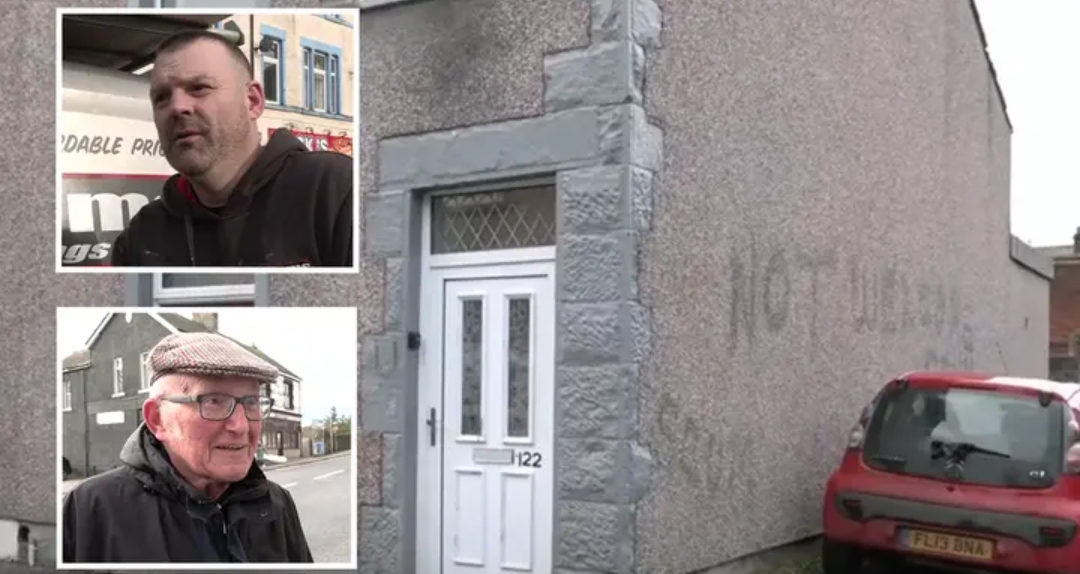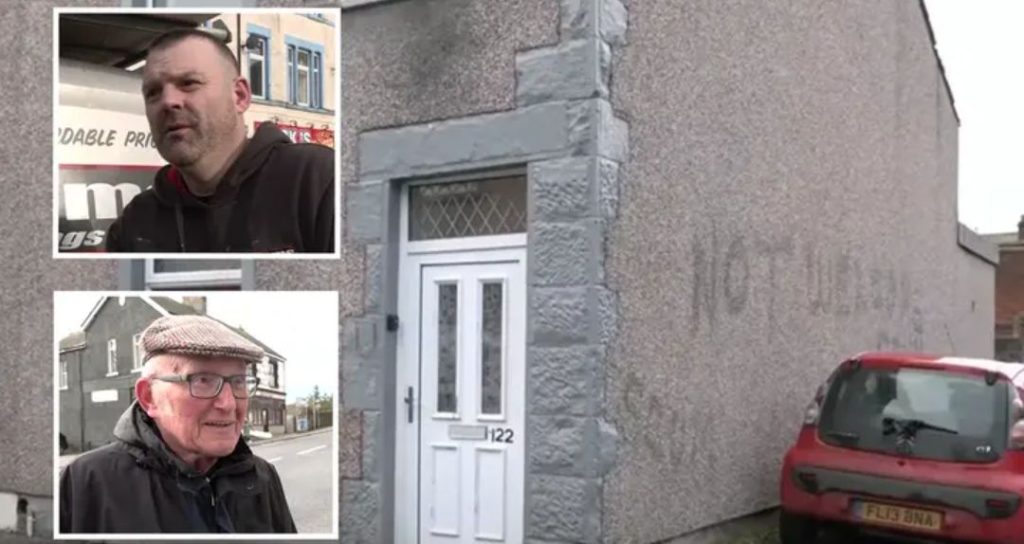
Residents of Millom, a tiny town nestled in Cumbria, have voiced their vehement opposition to plans to accommodate asylum seekers within their community. The announcement, which came without prior consultation with local authorities, has ignited a wave of anger and frustration among the town’s inhabitants, as reported by GB News.
Mayor Simone Faulkner expressed her dismay at being blindsided by the decision, asserting that neither she nor the town council were consulted before the implementation of the plan. The directive, issued to utilize eight homes for housing up to forty asylum seekers, has sparked concerns about the town’s already strained infrastructure and limited resources.

The backlash against the arrival of asylum seekers manifested in acts of vandalism, with one terraced house bearing graffiti proclaiming “Not welcome scum” in bold black letters—a clear indication of the hostility brewing within the community. While both the Home Office and local authorities have swiftly condemned such acts, they have failed to assuage the deep-seated apprehensions of Millom’s residents.
In interviews with GB News, residents expressed their frustration and apprehension about the potential impact on their town. Questions lingered about the practicality of accommodating additional individuals and the strain it would place on already stretched resources. Concerns were raised about the lack of communication and consultation with local stakeholders, leaving residents feeling sidelined and disregarded by the authorities.
Mayor Faulkner highlighted the town’s inadequate infrastructure and transportation network as factors exacerbating the tensions surrounding the sudden influx of asylum seekers. The absence of prior notification or engagement with the local community only served to intensify feelings of resentment and frustration.
A spokesperson for the Home Office reiterated the government’s commitment to managing the asylum system’s pressures while acknowledging the need for collaboration with local authorities. However, assurances from official channels have done little to quell the unrest brewing within Millom.
The prevailing sentiment among residents is one of betrayal and neglect, with many feeling marginalized and unheard in decisions impacting their community’s fabric. The lack of transparency and consultation has deepened the divide between residents and government agencies tasked with managing the asylum process.
As Millom grapples with the implications of hosting asylum seekers, the broader conversation around immigration and community integration takes center stage. The incident serves as a poignant reminder of the importance of open dialogue, transparency, and collaboration in navigating complex social issues.
In the absence of meaningful engagement and proactive measures to address residents’ concerns, tensions are likely to persist, casting a shadow over the town’s social cohesion and highlighting the challenges inherent in managing immigration at the local level.
The road ahead for Millom remains fraught with uncertainty, underscoring the imperative of fostering dialogue and cooperation between all stakeholders to ensure a more inclusive and equitable approach to community development and integration.




